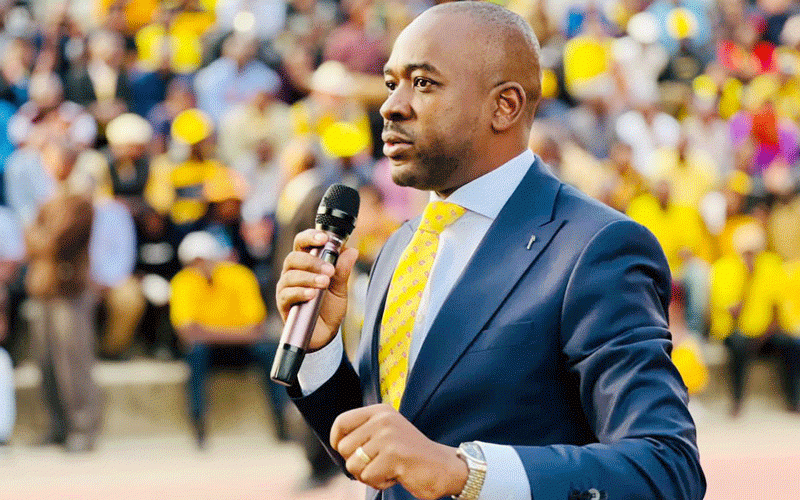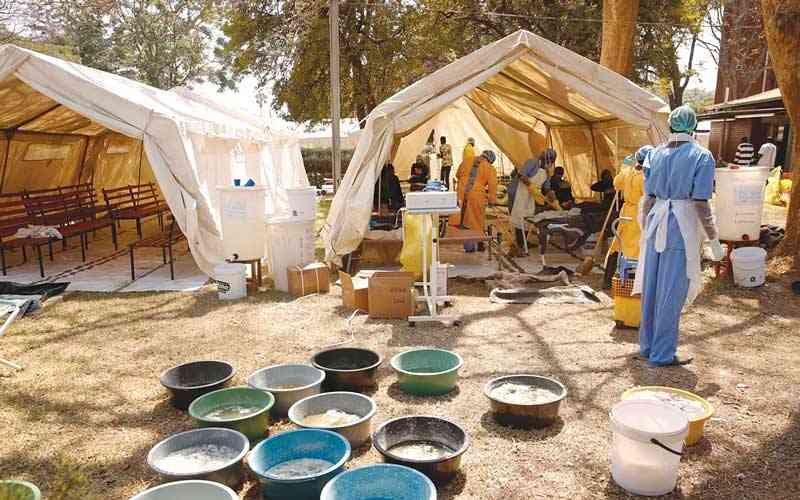
YEAR after year, one news headline keeps popping up without fail: Nelson Chamisa calls for the intervention of the Southern Africa Development Community (Sadc) in the Zimbabwean crisis.
That has been the case since he became the face of opposition politics in the country in 2018 following the death of Morgan Tsvangirai, the founding leader of the Movement for Democratic Change.
Two days before the July 31, 2018 polls, a report emerged from South Africa of Chamisa demanding an urgent meeting of Sadc heads of State to discuss concerns around Zimbabwe’s electoral processes.
In January 2019, Zimbabwe witnessed government deploying the army to deal with disturbances following protests over a 150% fuel price hike. Human rights groups reported that 17 civilians were shot dead, while thousands suffered bullet wounds.
Chamisa later held a Press conference where he said the situation in the country had reached crisis levels.
“The country is currently mired in a multi-layered political, economic, social and humanitarian crisis,” he said then.
He decried the “onslaught by the State to kill, torment and harass innocent Zimbabweans in a tragic move that only goes to show that contrary to the much-vaunted mantra, this is not in any way the second republic but a heinous continuation of the brutal first regime post-independence in 1980”.
What was his recourse?
- Young vocalist making southern Africa dance
- Ndiweni slams 2022 census outcome
- Albert Nyathi poetry delights Kenya
- Ndiweni slams 2022 census outcome
Keep Reading
“Our concern is that in spite of the letters and communication we have sent to Sadc and the African Union, they have remained mum in light of a precarious human rights situation in the country and an onslaught on a legitimate political movement in the country,” he said then.
“We urge Sadc and the AU [Africa Union] to show solidarity with the people of Zimbabwe by stopping this heinous onslaught on the country's citizenry and facilitate dialogue to resolve the political stalemate in the country.”
There was deafening silence from Sadc. In the following years, as the economy worsened and the human rights situation further deteriorated, Chamisa and the opposition kept calling on the regional leaders to deal with what they termed a “governance and legitimacy crisis” in the country.
If anything, the regional leaders seem to have coalesced around President Emmerson Mnangagwa, deepening co-operation with his administration in the spirit of camaradie.
With Zimbabwe holding general elections in under two months, the human rights situation has worsened. An emboldened Mnangagwa has gone after critics with renewed vigour.
Early this month, the Zanu PF-dominated Parliament approved some of the most repressive laws this country has ever seen: The Criminal Law [Codification and Reform] Amendment Bill, widely known as the “Patriot Bill”. This law is basically designed to outlaw criticism of the government for its failure.
There is also the PVOs Amendment Bill, which critics say is designed to keep non-governmental organisations government accuses of pushing a regime change agenda, in check.
In an interview with South African Broadcasting Corporation on Sunday, Chamisa was at it again, calling for Sadc intervention.
It has not dawned on him that no one outside our borders is paying attention to the “deepening crisis in Zimbabwe”.
Comments made by South Africa’s African National Congress secretary-general Fikile Mbalula at the weekend implying that Chamisa is a Western puppet simply show the extent of the region’s disconnect with what is happening in Zimbabwe.
Chamisa and the opposition need to understand that, to paraphrase Bob Marley in his famous Redemption Song, none but ourselves can free us from Mnangagwa and his tyranny.
Because no one is coming to save us.








